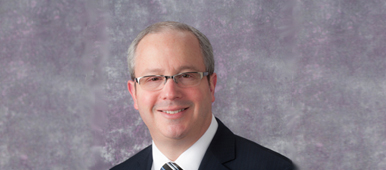Through My Father’s Eyes
 Growing up with a father who was a general surgeon, now retired, I was frequently exposed to the life and practice of a doctor. I witnessed a caring, compassionate physician rush off in the middle of the night to take out an appendix or manage a local trauma or an acute abdomen. What I was also witnessing was traditional and now, almost historic, medicine at its finest. The days of constant call, pay-for-service, and the prestige of medicine were in their hayday.
Growing up with a father who was a general surgeon, now retired, I was frequently exposed to the life and practice of a doctor. I witnessed a caring, compassionate physician rush off in the middle of the night to take out an appendix or manage a local trauma or an acute abdomen. What I was also witnessing was traditional and now, almost historic, medicine at its finest. The days of constant call, pay-for-service, and the prestige of medicine were in their hayday.
Since then, the transition to this current era has been dramatic. We’ve seen the evolution of evidence-based medicine, and more active involvement by the government within the practice of medicine, including governmental acts in healthcare laws to both protect patient’s privacy and to expand medical coverage for all. We’ve seen the reduction in residents’ hours leading to expectations of new practicing physicians to want to work less (and get paid more!). We are seeing hospitals purchasing practices by and the painful extinction of the private practitioner. There are more practice requirements, as well as restrictions, from both regulators and specialty societies. Accompanying this change has been the evolution and revolution of medical science that is slowly changing from what used to be significantly experiential and anecdotal to a more data-driven knowledge base in the formation of guidelines and best practice statements. This is going even further to include quality measurements that will not only improve outcomes but influence payment models and reimbursements. Additionally, the maturation of the Internet allows instant access to information: from being able to access everything from your pocket smart phone to the expansion of social media exemplified by the efforts of BJUI herein and the recent journal clubs conducted entirely on Twitter; technologies tying specialists together from all over the world.
Medicine has never just been about helping people, it is really about change: learning new science whether it be pathophysiology, medications or techniques. The ability for the practitioner to acclimatize to that change is how medicine has weathered the test of time. We adapt, we learn, and, ideally, we grow and become better doctors providing better care.
I recently had the pleasure of introducing my son, a high school student, to surgery just as my father had done with me (my first case was an appendectomy): he was able to observe a PCNL. Previously, if asked, he had disavowed any concept of pursuing medicine. Now, after seeing “cool” surgery that was like playing a video game, he is reconsidering. If he does enter into it, what will medicine look like in his time? How many more changes will occur going forward? How will we continue to evolve? Will he one day reflect upon medicine as it was through his father’s eyes? Time will tell…
Timothy D. Averch, MD, FACS is Professor and Vice Chair for Quality and Director of Endourology at the University of Pittsburgh Medical Centre Department of Urology, Pittsburgh, USA.
Comments on this blog are now closed.

